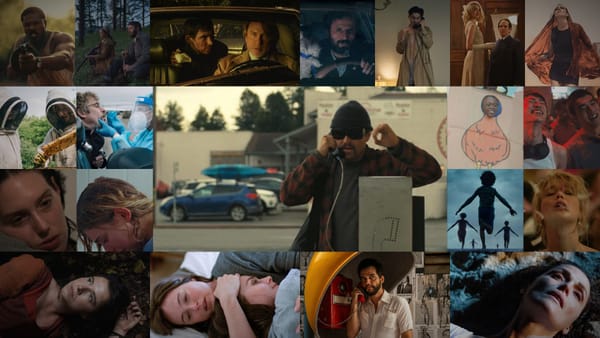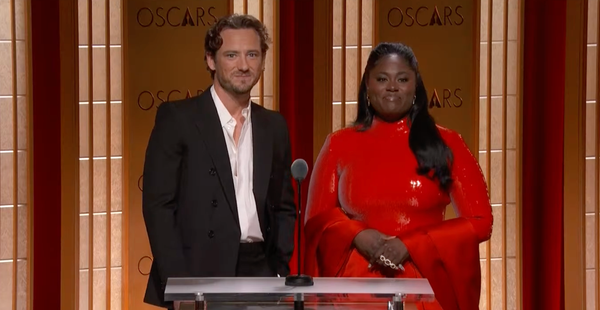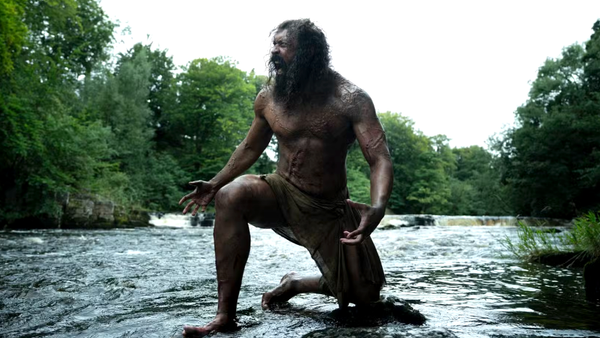Stuff I'm Still Doing Because of COVID
It's still a thing.

Like virtually everyone, my life was transformed when the COVID-19 pandemic hit. I found myself working from home, limiting my time in public spaces, and taking basic safety measures like masking. The virus would end up killing at least 6.9MM people around the world.
This summer, COVID is on the rise again along with a slew of stories about how it has the potential to impact vital organs or completely derail your life. I want to be clear and say that COVID is unlikely to be nearly as deadly as it has been in the past due to the fact that millions have already been infected and many are now vaccinated. That said, it will continue to be a factor in our lives. According to The New York Times:
In the best-case scenario, with people of all ages opting for an updated vaccine and a variant that is susceptible to that vaccine, Covid might cause 484,000 hospitalizations and 45,000 deaths — about the toll of a bad influenza season.
“Based on these projections, Covid is likely to remain in the leading causes of death in the United States for the foreseeable future,” said Justin Lessler, an epidemiologist at the UNC Gillings School of Global Public Health who coordinated the research effort.
I’m one of very few people I know that still takes significant safety precautions to prevent contracting COVID. There are many reasons I do this but the biggest one is that my wife has a health condition that would be severely exacerbated if she were to get COVID. Also, I’m aware that COVID is highly unlikely to kill someone in my age demographic; it’s the risk of Long COVID (which currently impacts about 1 in 5 people who get COVID) that I’m trying to minimize.
That said, I know I’m not the only one out there who still cares about this topic. Many of you may either have a family member who is immunocompromised or, for whatever set of reasons, you don’t wish to contract COVID yourselves. So in the spirit of sharing and solidarity, I thought it’d be useful to make a post explaining what safety precautions I still take.
Before we begin, please consider these caveats:
- I am not a doctor and this post does not constitute medical advice - I’m just someone who (still) doesn’t want to get COVID and has tried to stay informed on the subject. As the science evolves and the levels of risk change, so do the steps I take.
- If you’re not doing any of this, I don’t care - The purpose of this post is not to judge anyone who’s not taking similar precautions. It’s to share what works for me. I’m aware that for practical or personal reasons, people might not be able to do some or any of these things. The steps below are trade-offs I’ve decided are worth taking. You will have a different risk calculus and that’s fine.
- If you’re doing way more than this, I’m not interested in your judgment - Feel free to share any ideas in the spirit of openness. But as I’ve just mentioned, everyone is making the set of trade-offs that makes the most sense for them — including me.
- No safety measure is a silver bullet - The purpose of any safety measure is not to completely eliminate risk but to lower it. No single one of these measures (or even all of them combined) is sufficient to guarantee any outcome. I am at peace with the idea that I will likely get COVID one day but if I can delay that day, it’ll still have been worth it. As one expert put it, “Getting hit with a baseball bat once is better than getting hit five times.”
- I live a rich and interesting life - To this day, people will harass mask-wearers in public. “Live your life!” they’ll say. I am! I recently attended the Taylor Swift Eras Tour (masked). I hang out with friends and family on a regular basis. I see at least one movie a week for The Filmcast. It’s possible to do the things I outline below and still be a person.
We cool? Let’s begin.
I wear an N95 mask anytime I am indoors with strangers - By far the biggest and arguably most effective step, I still mask everywhere I go in public. This means airplanes, shopping malls, movie theaters, grocery stores, etc. If I’m going to be outdoors in close quarters with people for an extended period of time (e.g. Swifties), I’ll also mask. My preferred mask is the Fangtian N95 Respirator which I find to be very hardy and effective. That said, this mask makes a fashion statement and does not blend in. If you decide to mask, you should obviously choose something you’re comfortable with wearing and being seen in. The most important thing is that the mask is N95 and that it creates a good seal around your face.
No indoor dining - This is the one I probably miss the most. At this point I still do not do any indoor dining at restaurants. By far, this is the biggest hindrance to my social life. Fortunately in Seattle, there are plenty of amazing outdoor/patio options, often with great views. Getting delivery is also an option.
I openly talk about avoiding COVID with friends and family - One thing that I’ve found to be effective is simply checking in with people about the fact that I don’t want to get COVID (it’s not a given!). Whenever there’s any kind of gathering, I’ll try to ask people to let us know if they are experiencing symptoms of any kind. We may also ask people to test and/or offer to test ourselves. People can be asymptomatic and tests don’t always pick up COVID so this is not bulletproof by any means, but if people don’t feel sick (e.g. they are not actively coughing or have a fever), that removes one risk factor.
Testing often - If someone in a household gets COVID, there’s actually a significant chance that they won’t transmit it to someone else in the household, especially if safety measures are taken (e.g. isolating, masking). This is why it’s important to know whether you actually have it. Anytime we engage in anything we believe is risky, we’ll test. Specifically, we will use either a home antigen or a home PCR test — the latter being much more sensitive (and expensive) than the former.
Neti pot rinsing after risky events - According to a recent study, flushing your sinuses out with a saline solution close to the time of COVID exposure can dramatically reduce the possibility of hospitalization. I already saline rinsed regularly due to an ongoing issue with my sinuses, so this one was easy to implement. My preferred implement of choice is the NeilMed Sinus Rinse bottle. If you decide to do this, be sure to use distilled water and not water from the tap.
Air filtration - Being masked indoors with friends/family is not a great experience, so we generally go maskless indoors with people we know. That said, we also use air filters positioned around our house. A standard HEPA air filter has the capability of filtering out the particles that carry COVID. To this day, I don’t understand why the United States hasn’t invested heavily in air filtration in our public spaces but I think everyone would rather just act like COVID is not a problem. As for brands of air filter, I’ve been impressed with the filters that Levoit sells, including this large one that can cover up to 3100 sq feet. One thing I’ve also experimented with is using this cute Westinghouse HEPA filter, which probably only has limited effectiveness in most environments. When you’re evaluating air filters, the most important thing to consider is the size of the room you’ll be putting it in and how fast the filter can move air through it.
I don’t shake people’s hands - Okay, this one doesn’t really have to do with COVID, which primarily spreads via airborne particles. But when the pandemic first kicked off, I stopped shaking people’s hands. I’ve always considered it a barbaric practice and a vector for disease. Now that the pandemic is over, people are shaking hands again. But instead I typically ask for elbow bumps. Often people are thrown off by this but they generally oblige and are occasionally grateful for the change of pace.
If you appreciated this post, please consider sharing it or subscribing to this newsletter.
Stuff I’m Still Considering For The Future
The following are a couple of things I’m still exploring but haven’t yet implemented.
Far-UVC lights for indoor spaces - I first learned about these when I heard that rich people were using them to avoid getting sick at Davos. It’s still something that I’m evaluating but it would take some amount of cost and time to implement in a way that made sense for our house. As such, I don’t have any recommended brands for this one yet.
Enovid, the Israeli nasal spray that stops COVID - There’s a nasal spray called Enovid that has been proven effective at stopping the spread of COVID via your nasal cavity. Despite this, it’s still not easily available in the United States and so I don’t use it regularly. That said, if you’re interested, it’s relatively easy to obtain and could be an effective precaution, especially if used in conjunction with any of the above.
It can definitely get lonely out there for folks who still care about this kind of stuff so I hope this post has been helpful. If it has, feel free to share the post or let me know in the comments.
Other Stuff David Chen Has Made
- Over at Decoding TV, Patrick Klepek and I discussed the first five episodes of Twisted Metal. It’s a really weird show! We’ll be wrapping up our coverage of it this week.
- On The Filmcast YouTube channel, we discussed Meg 2: The Trench, one of the last vestiges of a time when China and the US cooperated on making things.
- [PAID ONLY] If you like this newsletter, supporting me on Patreon is a great way to support what I do. This week, I posted the latest audio experiment for a project I’m doing with actor Stephen Tobolowsky. You can listen here.



